php 语法中有 let 吗?
来源:http://stackoverflow.com/questions/9705281/with-and-let-in-php

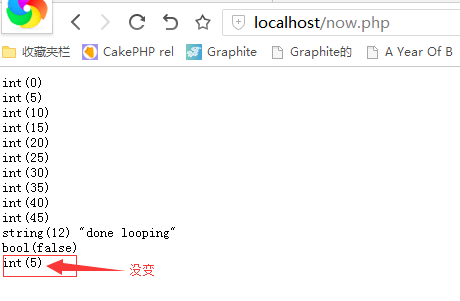
use(&$a)
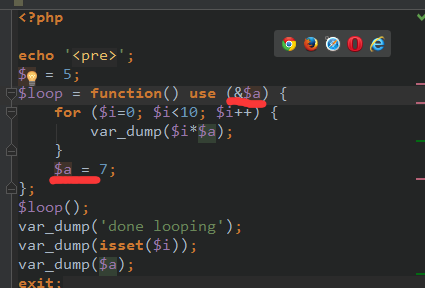
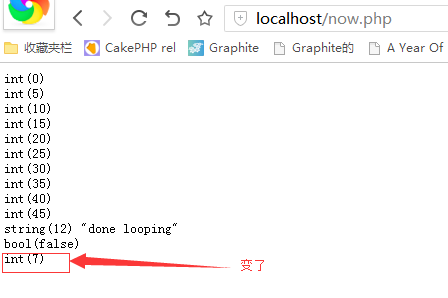
用 use ($parameter) 这种语法来往一个函数里面传参。比如往一些回调函数里面传参,这是医用手段。
我们再继续深入一下 PHP中的 anonymous function , 体会一下 use 的用法 和 有 & 符号与没有 $ 符号的区别。
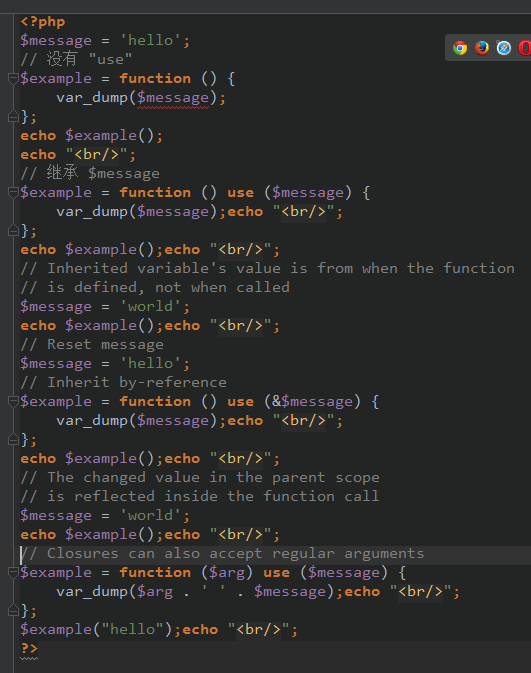
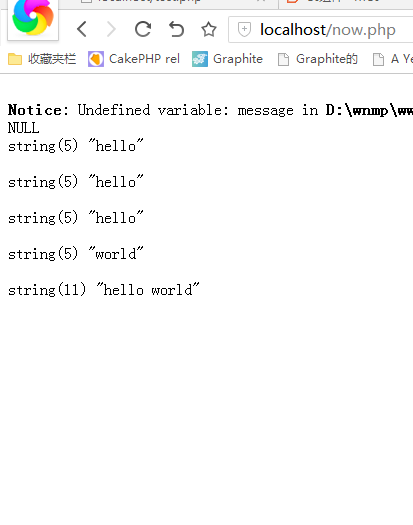
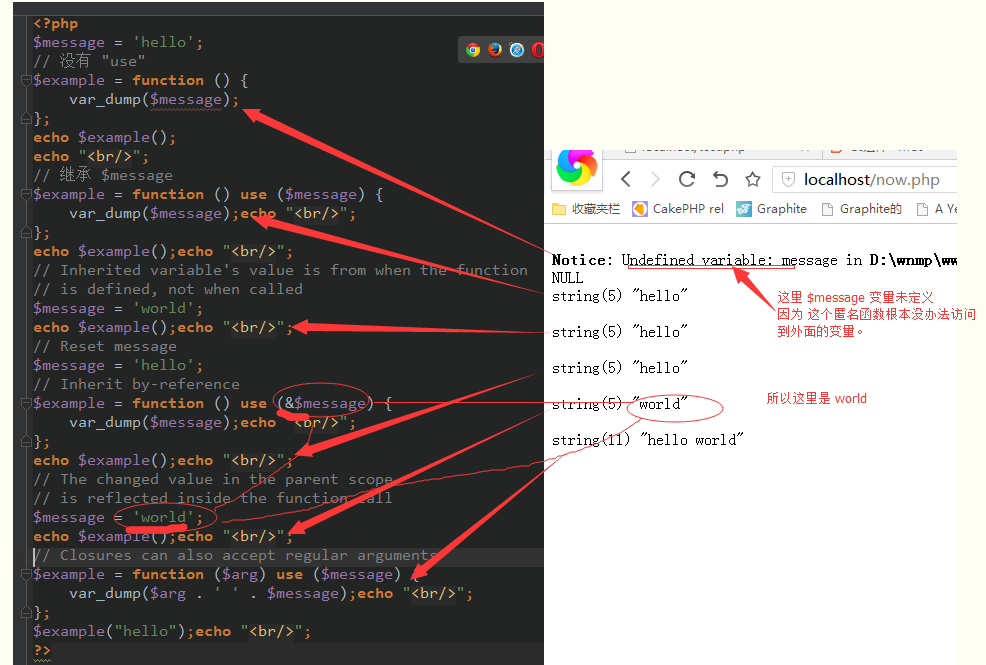
Recently I found out about with and let statements for javascript.
I'm interested in achieving something like mentioned here:http://stackoverflow.com/a/1462102/393406, except for PHP in OOP fashion.
Like:
$builder = new markupbuilder();
with($markupbuilder){
div(
h1('A title...') .
p('This is ' . span('paragraph') . ' here.')
);
} // respectively
$builder->div(
$builder->h1('A title...') .
$builder->p('This is' . $builder->span('paragraph') . ' here')
);
So, is there something similar for PHP or how could I achieve this in PHP?
Answer:
first:
This is sort of a trite reply, but you have not saved a single character of typing in your example, and I believe that's the whole point of using with. The with statement also introduces ambiguity. Do you want to call getElementsByTagName on the DOMDocument object, or do you want to call the globally defined function of the same name?
As for let, PHP variables apply to the scope they are in by default -- you have to use the globalkeyword not only to make them globally accessible in general but any time you want to use them in another scope (and I would suggest never to use them period). Some may say it is a limitation on PHP that if and other constructs don't have their own scope, and let may be useful there, but if you wanted another variable in one of those constructs you could just declare it separately or move the functionality to a function scope.
second:
PHP doesn't have let but you can accomplish the same thing using other constructs, thought it is much messier!
First, what we wish we could do: (This doesn't work)
echo '<pre>';
$a = 5;
for (let $i=0; $i<10; $i++) {
var_dump($i*$a);
}
var_dump('done looping');
var_dump(isset($i));
exit;
This is what we have to do instead:
echo '<pre>';
$a = 5;
$loop = function() use (&$a) {
for ($i=0; $i<10; $i++) {
var_dump($i*$a);
}
};
$loop();
var_dump('done looping');
var_dump(isset($i));
exit;
$loop is assigned to an anonymous function which is actually a closure. Because $i is defined inside the function, it now has function scope and can't "leak". $a on the other hand could be passed to the function as a param, but this would get in the way if you wanted this function to have real parameters. Instead we give the function access to $a through the use statement.
Finally, we call $loop(); because PHP doesn't let us call anonymous functions the way JavaScript does function() { alert('My anonymous function!'); }();
We then call var_dump(isset($i)); and see that $i is not set outside of the function.
最新文章
- 【中文分词】最大熵马尔可夫模型MEMM
- 《.NET开发资源大全》
- SNMP与MIB
- [转]各种移动GPU压缩纹理的使用方法
- 适应手机端的jQuery图片滑块动画DEMO演示
- sax 解析 xml
- jenkins2 multibranch
- Spring框架学习之第5节
- 基于jQuery美化联动下拉选择框
- 写sql语句注意事项
- linux之SQL语句简明教程---UNION
- WCF 项目应用连载[8] - 绑定、服务、行为 大数据传输与限流 - 下 (ServiceThrottlingAttribute)
- kprobe 内核模块
- Java公开课-01.类和对象
- python_斐波那契数列
- 高通 MSM8K bootloader : SBL1 .
- 让pip使用python3而不是python2
- Supervisor的安装以及使用
- 消息中间件和JMS介绍
- 性能测试四十七:jmeter性能监控工具ServerAgent